The Dachau Memorial Public Tour offers visitors a sobering glimpse into one of history’s most harrowing chapters. Led by knowledgeable guides, the five-hour experience delves deep into the grim daily life of concentration camp prisoners, the appalling medical experiments conducted on inmates, and the tragic fate of the Roma people. While the historical significance is undeniably compelling, the execution of the tour has received mixed reviews, leaving some participants questioning the quality of the guide and overall experience. Nevertheless, those seeking to confront the darkest corners of the past may find this tour a poignant and thought-provoking journey.
This experience made our list of the 4 Best Tours In Dachau.
Key Points
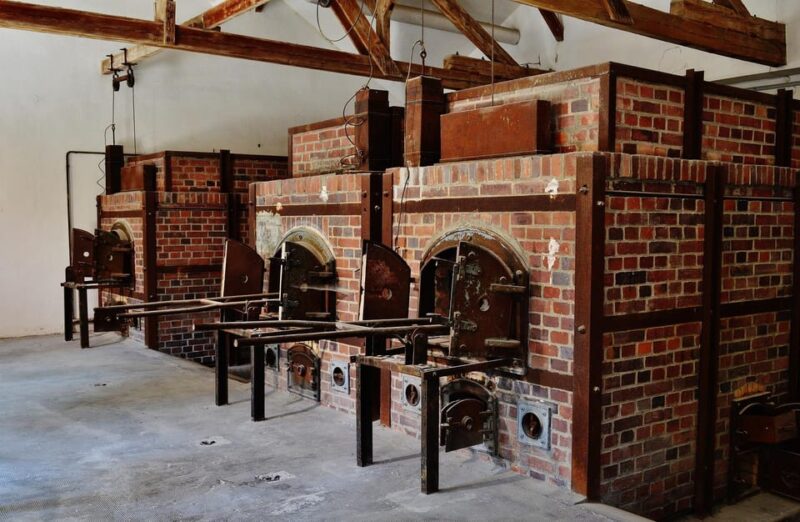
- The Dachau Memorial Public Tour provides a 5-hour English-language tour of the former Nazi concentration camp, starting at $118.25 per person.
- The tour focuses on revealing the chilling daily life dynamics, gruesome medical experiments, and the fate of Roma prisoners at the camp.
- Survivor narratives are highlighted to offer a human perspective on the historical tragedies and showcase the resilience of the human spirit.
- The meeting point for the tour is the Fish Fountain in Marienplatz, Munich, Germany.
- The tour has received an overall rating of 1 out of 5, indicating concerns with the guide quality and the need for an enhanced tour experience.
Tour Overview
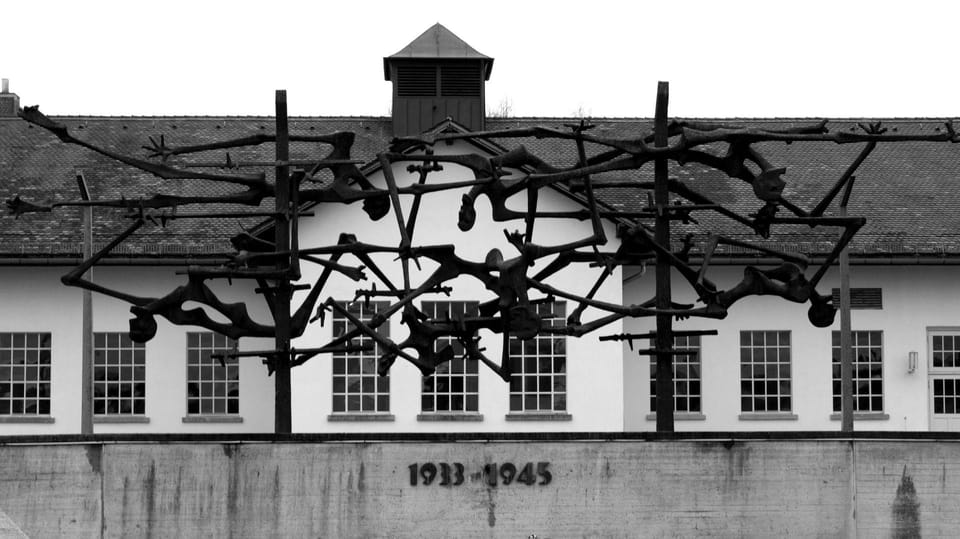
The Dachau Memorial Public Tour provides visitors with an in-depth exploration of the historical significance and grim realities of the Dachau Concentration Camp.
Priced from $118.25 per person, this 5-hour English-language tour allows guests to explore the camp’s dark history and witness daily life, guards, and prisoners, revealing the chilling camp dynamics.
Free cancellation up to 24 hours in advance is offered, and a reserve now, pay later option is available.
The tour includes a local professional guide, public transport tickets, and online payment processing fees, though food and beverages aren’t included.
You can also read our reviews of more tours and experiences in Dachau.
Historical Significance
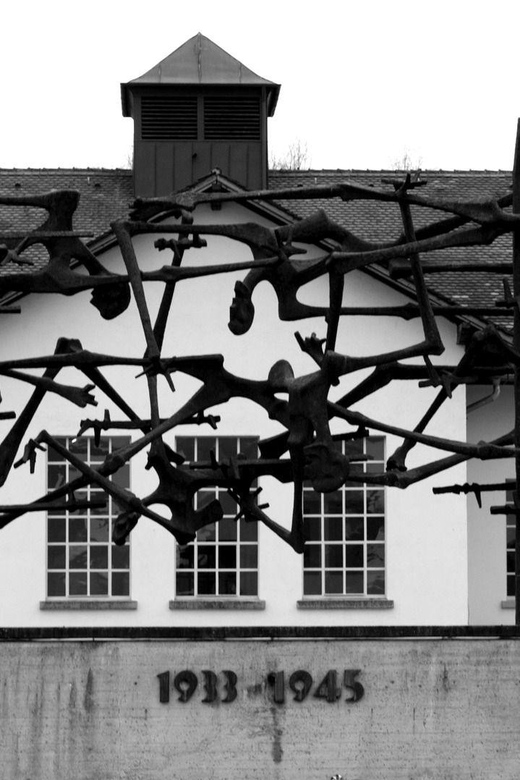
Dachau Concentration Camp was the first opened by Nazis in 1933, initially for political prisoners.
It evolved into a forced labor camp, holding over 200,000 inmates during its 12 years of operation.
Dachau was known as an "Academy of Terror," killing around 40,000 people from 34 nations before being liberated by American forces in 1945.
Prisoners faced gruesome medical experiments, and the Roma people suffered untold stories of suffering.
Survivor tales provide a human perspective on the resilience required to endure the dreadful fates of those imprisoned within Dachau’s walls.
Explore Dachau’s Dark History
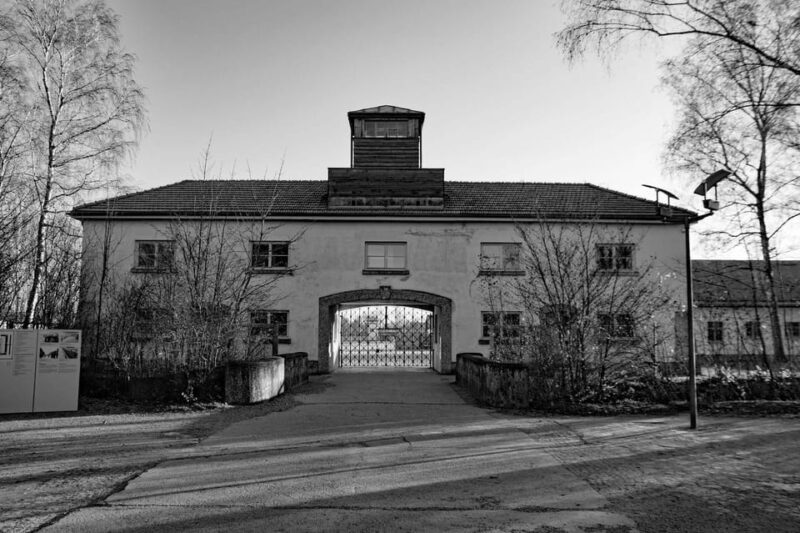
Visitors on the Dachau Memorial Tour can expect to explore the camp’s dark history and the horrendous acts committed against humanity within its walls.
The tour delves into the chilling dynamics of daily life, exposing the guards’ cruelty and the prisoners’ suffering. Participants will learn about the gruesome medical experiments conducted on helpless inmates, illuminating the dreadful fates of Roma prisoners and the untold stories of anguish.
The tour also highlights the resilience of survivors, providing a human perspective on the horrors of the camp. Through this immersive experience, visitors gain a deeper understanding of the tragedies that unfolded at Dachau, a profound reminder of the darkest chapter in human history.
Daily Life in the Camp

Within the confines of Dachau Concentration Camp, a chilling routine unfolded daily.
Prisoners were forced to rise at dawn, enduring roll call as guards scrutinized their ranks. Marching to slave labor, many collapsed from exhaustion and malnutrition. Meager rations of bread and watery soup scarcely sustained them.
Housed in overcrowded barracks, prisoners slept on wooden bunks, suffering from disease and vermin. Horrific medical experiments targeted the most vulnerable, robbing them of their dignity and lives.
Through it all, the steady drumbeat of violence and arbitrary cruelty echoed, a constant reminder of the camp’s dehumanizing grip. This bleak existence epitomized the daily horrors experienced by Dachau’s unfortunate inmates.
More Great Tours NearbyGruesome Medical Experiments
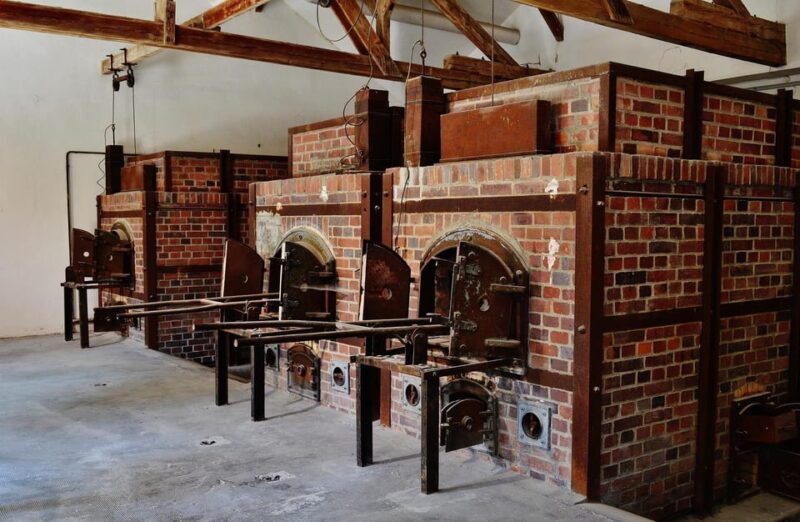
Alongside the daily horrors of camp life, Dachau’s inmates endured gruesome medical experiments.
SS doctors subjected prisoners to freezing experiments, testing methods of reviving victims of hypothermia. Others were infected with malaria, typhus, and other diseases to evaluate treatments.
Prisoners were also sterilized through castration or radiation. Many died from these cruel experiments, while survivors suffered lifelong physical and psychological trauma.
The Nazis’ inhumane pursuit of medical knowledge and racial "science" led to the torture and deaths of countless innocent people, forever etching Dachau’s legacy as an "academy of terror."
Fate of Roma Prisoners
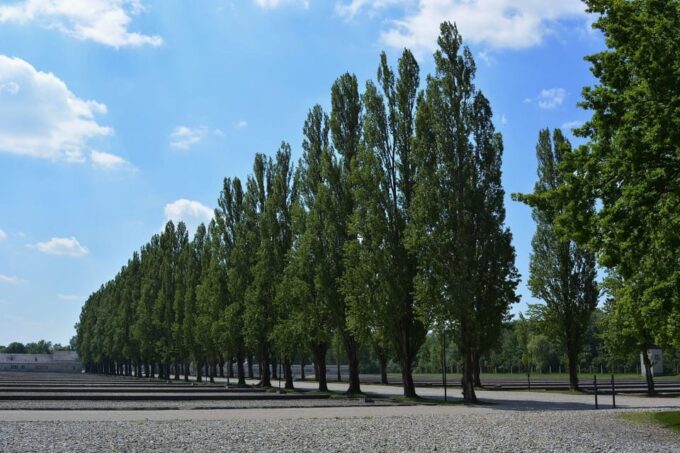
Among the many atrocities committed at Dachau, the dreadful fate of Roma prisoners stands as a harrowing testament to the Nazis’ systemic persecution and genocide.
Labeled as "asocials" and "deviants," Roma were targeted for extermination, with many facing forced labor, medical experimentation, and execution.
Survivors recount the horrors of the camp, where Roma prisoners were subjected to brutal treatment, starvation, and disease.
The Nazis’ relentless campaign to annihilate the Roma population is a chilling reminder of the depths of human cruelty.
The untold stories of Roma suffering at Dachau must be honored, serving as a solemn warning against the dangers of prejudice and intolerance.
Survivor Tales of Resilience
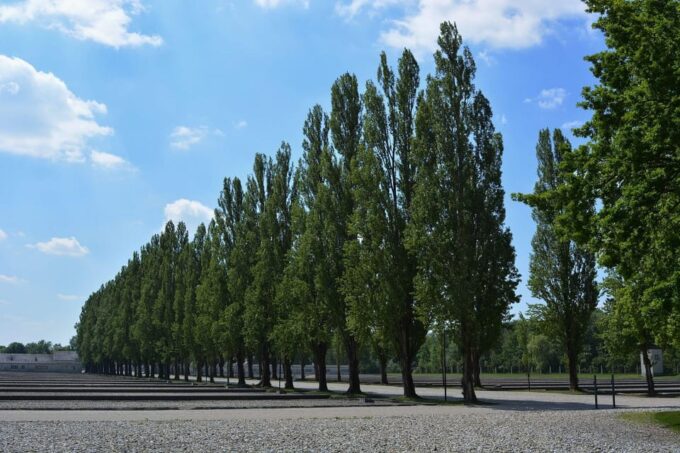
Survivors of the Dachau Concentration Camp have shared gripping tales that illuminate the remarkable resilience of the human spirit amidst unimaginable suffering.
Despite the horrors they endured, many prisoners found the strength to persevere, clinging to their humanity in the face of dehumanizing conditions.
Witness accounts describe acts of compassion, resistance, and even small triumphs that helped sustain prisoners’ will to live.
These survivor stories provide a vital human perspective, revealing how individuals summoned the courage to withstand the camp’s brutality and, in some cases, emerge with their dignity intact.
Their stories serve as a poignant reminder of the indomitable nature of the human spirit, even in the darkest of circumstances.
Meeting Point and Feedback
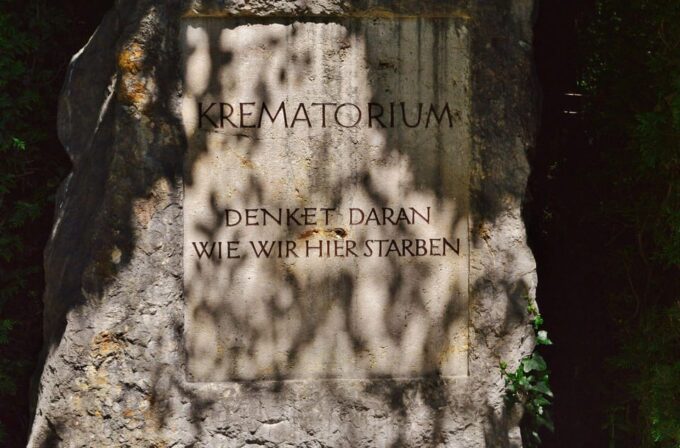
The meeting point for the Dachau Memorial Public Tour is at the Fish Fountain in Marienplatz 8, 80331 München, Germany. This centralized location makes it easy for participants to gather before embarking on the somber tour.
According to customer reviews, the overall rating for this tour is 1 out of 5, suggesting concerns with the quality of the guide’s information and the perceived value of the experience.
While the historical significance and highlights of the tour are compelling, the feedback indicates room for improvement in the tour’s execution and delivery.
Prospective participants may want to research further details to ensure the tour meets their expectations.
Frequently Asked Questions
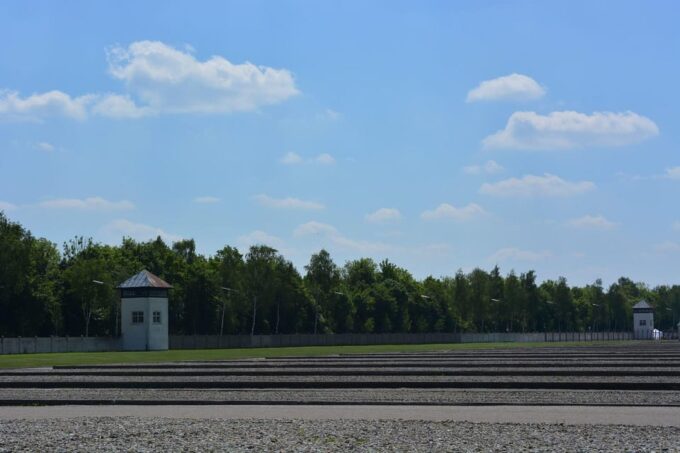
Is the Tour Suitable for Children Under 12?
The tour may not be suitable for children under 12 due to its historical focus on the Dachau concentration camp’s disturbing details and grim narratives, which could be psychologically distressing for younger audiences.
Can I Take Photographs During the Tour?
Visitors are generally allowed to take photographs during the tour, but they are advised to be respectful and avoid capturing images that may be considered insensitive or disruptive to the memorial experience. Check with the tour guide for any specific restrictions.
Are There Any Physical Requirements to Join the Tour?
The tour has no explicit physical requirements, but visitors should be aware that it involves extensive walking and standing. Those with mobility issues may find the tour challenging. Participants should wear comfortable shoes and prepare for the extensive historical content.
Is the Tour Wheelchair Accessible?
The tour appears to be wheelchair accessible, as it includes a ticket for public transport. However, the memorial site may have some uneven terrain or steps, so visitors with mobility concerns should check with the tour operator for specific accessibility details.
What Is the Refund Policy if I Cannot Attend the Tour?
The tour has a free cancellation policy up to 24 hours in advance, providing a full refund if you can’t attend. This flexible policy allows customers to plan their schedule with confidence.
Recap
The Dachau Memorial Public Tour provides a sobering glimpse into one of history’s darkest chapters. While the tour’s historical significance is undeniable, the quality of the guide and overall execution can be inconsistent. Visitors should be prepared for a poignant and potentially challenging experience as they explore the camp’s grim daily life, inhumane medical experiments, and the tragic fate of the Roma people.
You can check availability for your dates here: